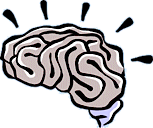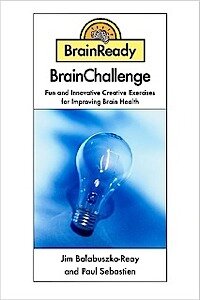
Will you be working at age 86? Probably. What about 94? 102?
Ah, the mid-life crisis.
Many of us have experienced them, particularly those in the rapidly expanding baby-boomer age range, yet even those in their late 30's and early 40's are increasingly showing the signs. From "what should I do with the rest of my life?" musings all the way to terrifying realizations that you're nowhere near on track for a retirement, ever, the importance of planning for a happy fulfilling future has never been more critical.
As individuals navigate a mid-life crisis, they often reflect on their past, leading some to seek out a neurodevelopmental program to rekindle personal growth and fulfillment.
But there's far more to the coming reality than you might even possibly imagine: we may be just starting to enter a completely new landscape, in our remaining lifetimes, that turns all existing notions about retirement, brain health, work, longevity, and society norms as a whole -- upside down.
Why?
Because we've just recently reached an inflection point in which existing popular beliefs about mid-life, old age, the importance of functional health, retirement and work are dangerously out-of-date. From the antiquated notion of retirement at age 65 (created when the average lifespan was LESS than 60 and set up so that few people ever actually ever even reached their retirement!) to outmoded assumptions about health and functional abilities to truly ancient workplace expectations (pensions, work-for-one-company-forever and be taken care of afterwards, etc.), the world has profoundly changed. But it's about to change much more, and exponentially faster -- rendering the today's landscape almost unrecognizable.
But this affects all of us: it's quite possible that following existing outdated models can put not only your future life into peril, but your family and even (in the aggregate) entire economies, the entire social structures as we know them today.
Radical theory? Read on.
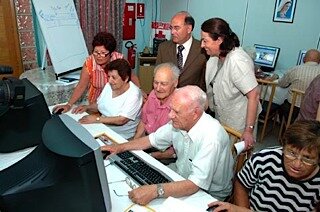
At a glance, much of it seems obvious: people are living longer, working longer, experiencing multiple jobs and companies during the course of a career where previous generations were more likely to work for only one or two companies. More and more even manage to reinvent themselves and enjoy multiple work and life experiences, often resulting from soul-searching moments (such as a mid-life crisis) in which they realize their true passions, interests, goals.
But surprisingly few people realize the sheer magnitude of the global changes underfoot -- changes which are actually accelerating faster and faster each year instead of following a predictable linear path.
Let's look what some of these rapid changes amount to in the following scenarios, and how all of this will affect you in your years just ahead. And yes, how all of these relates to your brain health:
- Mary and Keiki, age 86 and 81 respectively, come up with what they believe is a truly missing social application that people similar to themselves in their 70's, 80's and 90's would love to have. As former software engineers and part-time social software virtual consultants who work from their homes, they brainstorm their idea over coffee and decide to generate bids for the software programming work via their favorite software outsourcing network, which generates two particularly compelling bids: one from a team in Romania that Mary has used in the past, and the other from a small team in a small village in rural China that Keiki's former co-workers have relied on.
They decide on the team in China, approve the budget, and programming begins. One week later, the first version of the product is ready to launch to the world for preliminary testing and feedback, all of which Mary and Keiki will watch keenly from home and via their mobile devices after their daily morning Yoga, weights training and brain exercise routine.
Or how about this scenario:
- Ravi, Lisa and Ivan are longtime friends since college who have managed to stay in close touch despite living in different cities around the world, in large part thanks to their weekly videoconferencing sessions. All in their late 70's, Ravi's past successful entrepreneurial companies that he built after a pursuing a completely new career path at age 56 (after 30 years as an employee at large companies) has allowed him to work only when he wants to, and always on exactly what inspires and motivates him. Lisa and James both work for small companies as employees but like many these days (often not by preference), they work as contract vendors, not employees, and work from home.
During a recent Sunday evening videoconference, Lisa and James bring up an idea for a new health care product that they're sure Ravi will be excited by as well, and the three of them discuss the idea of Ravi funding the creation of a virtual company around the product idea. While pursuing their existing activities, the three of them develop the initial product (outsourcing production to four different global companies) based on Ravi's funding, and test-market the product and marketing pitch via a web site that they've hired a team in a remote region of northern Canada to create. Within less than a year, the product is a success, allowing Lisa and James to quit their existing contract jobs and focus on the new virtual company with Ravi while finally being able to dramatically increase their volunteer and charity work each month.
All of them continue to live in different cities and work from home, but decide to celebrate their new success by meeting in Kyoto, Japan for a week of exploring ancient Buddhist temples.
Then there's Sandra:
- Sandra had been dabbling with putting up an extremely niche product-selling web site, during her evenings after long grueling days working as an administrator at a large insurance company. At 54 years of age, she had experienced more than a few "mid-life crisis" moments of reflection on her life, career and road ahead -- always feeling that she had to find a way to break out of the mold...to do something different, to finally get a chance to really travel and see the world before she really felt it was too late.
After some late-night research following a particularly thankless day at the office, she learned that the converging trends happening in technology had made it extremely easy for literally anyone to create her own web site from which she could do things like sell products, market those products to the world via Google ads just like the big companies did, and even manage every aspect of her web site/advertising/everything from her mobile phone. As an experiment, she came up with an idea to sell a highly niche-market product that she felt people like herself would want, quickly created a web site around the product, and started running some inexpensive text ads on Google.
She started to sell products (that she didn't have to create, as the products already existed...she just received the equivalent of a sales commission), worked on growing and expanding her offerings and sites during her evenings before bed, learning more and more each day.
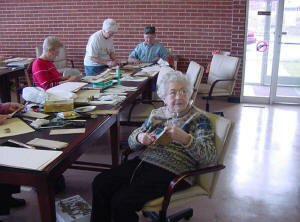
After a mere two years, Sandra's life bears no resemblance to her former daily grind: she runs multiple successful niche product web sites and has even created some of her own products (produced, manufactured and shipped from production plants around the world direct to buyers...she simply receives electronic payment notifications). She has quit her administration job, and moved -- but moved into the air: she has sold her existing home and now spends her days traveling around the world, spending three to twelve months in a given location (enough time to really soak in the culture, food, and way of life of each location) before moving to her next lifelong dream locale. Her business? Income? Managing everything?
Sandra's entire infrastructure consists of her small laptop computer, and her mobile device. Most days, Sandra doesn't even open her laptop, as she can manage all existing business via her mobile device. But more importantly, she has taken steps to properly outsource nearly all of the time-consuming tasks related to managing her web sites' operations, a move which is worth far more to her in the time and freedom afforded than by the comparatively small amount of money she pays each month to pay the outsourced companies. Sandra is now truly living her dream: unlimited travel, completely automated income streams, work that she enjoys and finds deeply creative (product creation, seeking, marketing) which helps her to stay sharp.
The constant brain stimulation from the sheer immersive newness of each new travel location, working with local charities in each area, and (surprise!) large amount of walking each day instead of being chained to a desk -- all have made her feel, and look, at least a decade younger. And she'll likely continue to thrive as she develops new learning, languages, ideas and ventures going forward. By age 90 she may decide to settle down in one place, but she won't have to.
Sound crazy? Do these examples seem far-fetched?
Think again: such examples will be the norm, and as hard as it may be to imagine now, you may be living one of these examples in the coming years ahead. And some are already living it today. More people than not will find these examples typical within their remaining years ahead, as soon as the next five to ten years (again, some are living this norm today).

But how will this be the case, so quickly? So soon?
We all know about improvements and advances in the kinds of health care that have been largely responsible for the ever-increasing average lifespans: more and more medicines and treatments to control the common physical maladies that come with age, better screening technologies to detect cancers and heart conditions and chronic diseases. Better understanding of the debilitating diseases and conditions that only decades ago limited the average lifespan to the 50's, 60's 70's at best.
So, suffice to stay that people are increasingly able to "live" longer, physically: heart still working, lungs still going, blood pressure and diabetes controlled just enough to allow people to be technically alive for longer than ever in the past, and increasing each year; there are more and more 100+ aged people each year, and soon many will live even longer on average, as technology continues to drive the possible lifespan longer and longer (some argue that it will soon be possible to literally "live forever" once nanotechnology is fully developed and exploited, but we'll save that topic for another tome...).
All of this talk of longer lifespans sounds fine, right? But there are other forces at work: disappearing pensions, an outmoded retirement age system (and general mentality), and exploding elderly population amounts to a new upcoming reality: more and more people in their 60's, 70's, 80's, even 90's -- will have to continue working to generate income.
And no, help from children and even grandchildren likely will not be nearly enough, given the magnitude of how much longer people will be alive and (most importantly) requiring costly medical and health-related care, services, support. People are just simply going to have to work longer, and as many know, this is starting to happen already even today.
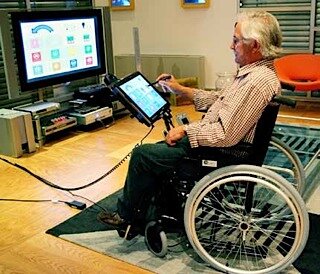
This is scary for many, exciting and energizing for others, but no matter how one looks at the coming Age of the Working Elderly, it all points to one rather dire need, one gaping hole: brain health becomes more important than ever. Yes, with all of the improvements in allowing humans to stay technically alive longer and longer, with artificial hearts and limbs and organs and medications, there's one area that will be more truly important than any other, particularly if one is required to continue working in some capacity: mental faculties. Mental acuity and agility. Brainpower. Brain health.
Unfortunately, society as a whole has placed comparatively little focus on breakthroughs in maintaining brain health with age, usually only startled into reality at the prospect of show-stoppers such as Alzheimer's. But if millions of people in their 70's and 80's have to continue working (often with people in their 20's, 30's and 40's), how will they measure up? How will they be able to perform work functions and keep up? How will you be able to stay sharp enough so that you'll be able to work, think and compete in your 70's, 80's, even 90's?
Whatever your current age, take a few minutes to fast-forward ahead. Picture yourself in the future, in your elder years. What if you have to continue working to generate income, or at least want to be able to stay mentally fit to actually ENJOY those ever-increasing years? What if you live to be 112 years old, how will you have enough money, and (more importantly) mental health to derive any pleasure out of those later years?
This is a wake-up call.
Yes, the premise is debatable -- and no one can predict the future. But all data (including current examples), macro-trending and even common sense point to the stark reality of a highly likely near-future in which you will likely be part, with people around you living and working longer and longer into a formerly unimaginable new reality that turns existing notions of work, income and retirement planning, health planning, your brain health, and most of all -- the importance of keeping your brain healthy from here forward.
Your diet, daily mental activities, physical exercise, and strong social connections become more than just "nice to have" optimizations that take a backseat to time spent on the cosmetic (wrinkle treatments, facelifts, skin bleaching, hair, etc.).
They become among the most important things that you can take control of, from today forward, to help ensure that you'll be mentally sharp, kicking butt and actually thriving in those extended years ahead.
Above all else, remember that your mind is your greatest asset. Treat it with the respect it deserves.
- The BrainReady Team
(What do you think about all of this? What can people do to help prepare for the changing times that lie ahead? Share your opinions and tips below, by clicking the 'Comments' link...)
